Translator's Foreword (Fluctuarius Argenteus)If you appreciate these translations, please feel free to give Kholmogorov a tip here.
As the perfect companion piece to his takedown of Stalin, here's Egor Kholmogorov's appraisal of Nicholas II, styled an "anti-Stalin", written during his recent trip to Crimea, which provoked another round of teeth-gnashing among Neo-Stalinists and Sovietophiles. It should also be norws that a recent poll shows that Nicholas II has overtaken Stalin as the most positively-regarded Russian historical figure of the 20th century.
AK's Foreword
-
Nicholas II: The Tsar of Normalcy
Original: Николай II становится для нас анти-Сталиным
"Here's where Nicholas II would go to visit his uncle. Yulia, get over here, grab a photo of him at this very place, I'll take a picture of you...", says a middle-aged man to his young daughter, two meters away from the spot where I am writing this article.
I found the above photo just three weeks ago, when all the social media feeds were overflowing with the Emperor's portraits on his birthday. I've never seen so many photos and such warm comments before.
The political "exchange rate" of Nicholas II in our historical memory is on the way up. Previously, monarchism used to be retrospective and slightly abstract: sure, we respect the Russian historical statehood in general, Orthodoxy, Autocracy, Nationality and all that stuff, and, given that this particular Tsar turned out to be the last one and died as a martyr, we'll respect him as well while taking note of his multiple foibles.
But these days I sense more and more of a markedly personal sympathy for the Emperor and his family among the people, going hand in hand with a more level-headed appraisal of his reign, gradually freed from Communist and Liberal propaganda clichés.
It turns out that the era of Nicholas II made an enormous contribution to Russian history, and ascribing these achievements of an autocratic Empire to anyone but the Emperor is at the very least shameless.
Nicholas II becomes something of a historical meme to us, a certain kind of an anti-Stalin. To properly understand this, however, we should first deal with Stalin himself.
The personality of the "Kremlin highlander"[1] embodies the idea of extreme measures taken during an extreme era of Russian history.
Paradoxically, Stalin is loved not so much for his achievements as for his methods: executions, incarcerations, deportations, a grotesquely wasteful use of human resources in both wartime and peacetime, the exchange of thousands and millions of human lives for percentage points of industrialization and kilometers of frontline advancement.
A huge number of people believe that "over here, it can't be done otherwise". Or, even more masochistically, "with us, it can't be done otherwise".
To prove this thesis, they cite the achievements of Stalinist Socialism, such as industrialization and the construction of the military-industrial complex. The USSR crushed Nazi Germany while Tsarism lost World War I, to say nothing of the Russo-Japanese war (which was also won by Stalin). We turned into a superpower and went to space.
"Was it the Tsar who launched Gagarin into space?", asks a commentator to a radio show where I gave a talk. No matter that the price for this Great Leap Forward were millions of Russian lives lost to the Civil War, three waves of famine, dekulakization, repression and crushing World War II defeats - after all, "with us, it can't be done otherwise".
It is probably a bit more complex than that.
With the Tsar in charge, Russia had no need to become a superpower; she was one. Our country lost this status due to revolutionary disintegration.
And yes, it was the Tsar who sent Gagarin to space. Russian rocket artillery was first used in the 1870s during the conquest of Central Asia. Konstantin Tsiolkovsky published his papers on rocketry during the reign of Nicholas II. Sergey Korolev's mentor Friedrich Zander published his first studies on interplanetary travel in 1908. "Kondratyuk's loop", the optimal trajectory of a flight to the Moon - where the Soviets didn't manage to send a man, unlike the US - was calculated in 1916 by Alexander Shargei, a student of the St. Petersburg Polytechnic founded under Nicholas II. Most founding fathers of the Russian space program studied in polytechnic colleges founded by the Tsar.
The Tsar didn't lose World War I at all. When he was overthrown by a coalition of mutineers and conspirators, Russian forces had a firm foothold in the territory of two out of three the enemy powers on its frontlines. Even the Provisional Government didn't lose World War I. Despite creeping revolutionary degeneration, the Russian army held the frontlines waiting for the inevitable Entente victory that would have given Russia its rightful place among the victors.
It was the Bolsheviks who lost World War I. They disbanded the army and signed the Brest-Litovsk peace treaty that enabled the occupation of all of Western Russia and pushed our borders back to the 16th century. Ascribing the Bolsheviks' defeat to the Tsar is as smart as it is cynical.
At no point in World War I was there even a remote prospect of Moscow or St. Petersburg getting captured. Before the Bolsheviks came, no one could imagine the Germans taking Kiev and advancing into the Crimea; to the contrary, Sevastopol was to be the staging ground for an invasion of Constantinople in 1917. Even the greatest debacle of the war, General Samsonov's campaign in East Prussia, wasn't in the same league as the Kiev encirclement, brought about by the unparalleled strategic genius of Comrade Stalin himself.
While one can debate over who was the true Commander-in-Chief of the Russian army in 1915-17, the Tsar or General Alexeyev, there is no doubt about the following. The Tsar understood that appointing the son of a cantonist to such a position would have been impossible in a deeply stratified Russian society, hence his decision to become a figurehead and let Alexeyev's military talents flourish. The general repaid for this with a base ungratefulness, only to realize very soon that without a Tsar, the post of Commander-in-Chief would pass to a Subaltern Krylenko or a Comrade Trotsky.
Ditto for the Russo-Japanese war. It was a conflict of three Great Powers (Russia vs. Japan, instigated by Britain). Russia fought at a remote theater of war, considered to be of tertiary importance, and narrowly avoided a catastrophe thanks to the Trans-Siberian Railroad built by Alexander III and Nicholas II. It is a huge question how things would have turned out without the revolutionary backstab, given the huge Japanese casualties.
In 1945, Stalin was reaping the consequences of America's crushing victory over Japan and the nuclear bombings of Hiroshima and Nagasaki. The war in the Far East was a requisition of war trophies from an already defeated empire. If the Red Army had faced any true Japanese resistance, those who had defeated Hitler would have also trounced Hirohito, but we would have paid thousands upon thousands lives for this geopolitical victory.
There is no doubt that shrewdly finding new allies and piggybacking on their achievements was a major effort of Stalinist diplomacy (generously paid for with Russian blood on the Eastern Front), but "winning the war" with Japan had nothing to do with it.
The Russian industrialization had been going on since the early 1890s (otherwise where did the working class that the Bolsheviks courted come from?), and Russia was one of the fastest growing economies on the planet.
Stalinist industrialization only appeared spectacular in the context of the devastation wrought upon Russia by Bolshevik dictatorship and Civil War. While Tsarist industrialisation operated by increasing the capital intensity of industry and accumulating labor-saving machinery, Stalinist "know-how" consisted of dropping the price of another industrial factor, that of labor, to near zero.
Hence the methods of compulsive labor in collective farms, exile settlements, and gulags reminiscent of serfdom or slavery. Conversely, the equipment was last-season at best, first American, unused during the Great Depression and bought with grain squeezed from the countryside (leading to a horrific famine), then German, taken as spoils of war.
Russia had its own military industries and was capable of building airplanes designed by Sikorsky (promptly kicked out of the country by the Bolsheviks) and especially battleships, which the Soviets failed to produce a single example of. In 1941, Leningrad's main defences consisted of battleships and the Krasnaya Gorka fort, all built under Nicholas II. Likewise, Sevastopol fought back with coastal batteries designed under the Tsar, with Battery #35 equipped with gun carriages from the Poltava, another Tsarist battleship.
If not for the Tsar's legacy, Leningrad would have fallen and Sevastopol wouldn't have held for almost a year.
During the Great War, thanks to Nicholas II's efforts, Russia quickly did away with ammunition shortage (common to all belligerent parties) and created armament reserves so vast that they, unfortunately, covered the Bolsheviks' needs during the Civil War.
Conversely, the Soviet military industry during the pre-World War II years was in the doldrums. In spite of a huge overspending of human resources in era of "5-year plans", as of 22nd June 1941, it depended... on its main adversary. To quote Alexey Isaev and Artem Drabkin[2], who can't be suspected of anti-Stalinism:
The equipment and cutting-edge specimens of armaments bought from the Germans invigorated Soviet military industry. For example, the most mass-produced Red Army cannon, the famous "forty-fiver" was actually a Rheinmetall-Borsig AG artillery piece upgraded by Soviet constructors. The M-17 aviation engine was nothing more than a licenced BMW VI motor... German machinery was used to produce the most advanced Soviet medium tank, the T-34-76.Nothing suggests that the military industry of a putative Imperial Russia in 1941 would have been weaker than that of the Soviet Union. Considering that its leading engineers wouldn't have been exiled, it would have been quite the contrary: During their march to Moscow, Guderian's tanks could have encountered Sikorsky helicopters armed with Zander-Korolev antitank missiles.
It is also uncertain whether German tanks would have even moved in the direction of Moscow at all. If not for the Red Scares, a party led by a deeply Russophobic Hitler would not have claimed power in 1933. German elites would probably have preferred more moderate revanchists leaning towards co-operation, not war with Russia.
If a World War II had broken out at all, it would have had entirely different provisions, and would not have been an all-devouring crusade of cannibals against Russia.
There is the conundrum: With each day of new research, it becomes more obvious that all technical, geopolitical, economic, or cultural achievements claimed by the Soviets to justify the the overthrow of monarchy and the Revolution would have been achieved to at least the same if not greater extent if the course of Russian history hadn't been interrupted by a revolutionary catastrophe.
In addition, we would not have needed to pay for those achievements with the bloodbath of the Civil War, the separatism of the borderlands, the meat-grinder of the Red Terror and de-Cossackization, the dishonour of regicide (including the execution of a disabled teenager), the torture of priests and profanation of holy relics, the three waves of famine (1921-2, 1932-3, 1946-7), the extermination of the technical and artistic intelligentsia as would-be "wreckers" and "enemies of the people". The poet Gumilyov, the engineer Palchinsky, the biologist Vavilov, the historian Lyubavsky[3], the military theorist Svechin and many others would have remained alive. Universal primary education would have been introduced 10 years earlier, and the GOELRO plan, based on Tsarist plans, would have been implemented 5 years ahead of the Soviet schedule.
In other words, from the viewpoint of national economic development, extreme revolutionary measures were entirely historically unjustifiable.
Just as the French Revolution derailed the country's development and stymied it with the Reign of Terror and the Napoleonic wars, the Russian Revolution was a bloodstained exercise in self-imposed hardships.
The monstrous mechanism of repression constructed by Stalin could barely reach the same results that the "decayed Tsarism" was in the course of achieving by itself, without murdering millions.
Compare and contrast the fate of the Trans-Siberian and Murmansk Railways, built under Tsarism without mass sacrifices, and Stalin's Transpolar Mainline, which claimed the lives of thousands of zeks and was finally abandoned until it was revived under Putin.
The last frontier of Stalinism is held by the following argument: "Well, if your Tsar was so good and kind and responsible before the country, he was still forced to abdicate, while Stalin killed all who conspired against him and clung to power".
Indeed, there isn't much that can be argued here.
Comrade Stalin managed to suspect and murder everybody right, left, and center. That is how he remains in history, as a suspicious, cruel, and ruthless despot, concerned above all with the preservation of his own personal power. Even in his famous Victory Toast "to the great Russian people", he didn't thank the Russians for the victory in the war but praised them for not ousting a horrifically incompetent government for the sake of a peace with Germany and fighting the good fight until the very end.
This, however, was a lesson learned by the Russians after they saw the consequences of deposing the government in World War I. No one wanted to repeat that.
Nicholas II, born with a sense of his right to rule and an ensuing sense of responsibility, wasn't willing to fight for his power at any cost. He wasn't a Machiavellian schemer or executioner. During the entirety of his reign, fewer people were executed - even counting the sentences of expedited military tribunals at the height of 1905-06 revolutionary terror - than the weekly toll of the Stalinist death machine just in 1937-38.
The Great Terror of 1937, pace the Neo-Stalinist myth, was not a purge of the corrupt Leninist "Old Guard". It was an extermination of former nobles, officers, peasants ("kulaks"), and members of opposition parties, while Communists were but a secondary target for this wave.
The Tsar didn't ferret out treason in his inner circle, didn't wage war against a press and a Liberal intelligentsia that smeared him 24/7, he didn't "wack" Guchkov, Milyukov, or his other enemies in the "political tusovka."
The Emperor was a man who was altogether normal - a good man at a personal level, competent in administration, pious in the Orthodox faith. He was convinced that if repression was useful at all, it was only so during limited periods of extreme emergencies, as opposed to anything permanent, and that the Russians deserved much better than being ruled with blood and terror.
That is the real secret behind today's "vogue" for Nicholas II's personality.
If Stalin is the image of an iron fist pushing our people over a field of blood towards superpowerhood, crushing the bones of enemies real and imaginary, then Nicholas II represents the Russian dream of a normal, non-catastrophic historical development, uninterrupted by great upheavals and bloodbaths.
In him, we see an image of how Russia could have developed over the 20th century had she not been misled by the glittering mirage of Revolution that turned out out to be false gold.
Take a look at old photos of Nicholas II. Climbing onto a Sikorsky airplane, and talking with its constructor. Trying on the uniform of a Russian infantryman. Playing with his heir on the beach. Walking through the vineyards of Danylivka with the Ayu-Dag mountain in the background. The affection that many feel for these photos is an expression of a simple dream, a dream of a ruler who would not be a torturer, a tyrant, or a paranoid mass murderer, but just a good man.
A dream of a Russia worthy of a ruler with a human face.
For this normal, non-cannibalistic ruler to preside over Russia's normal, non-catastrophic development without being destroyed by his enemies, the nation and society itself needs to be imbued with the will for a non-revolutionary, non-extreme course of development.
That was exactly what Nicholas II didn't have enough of, not determination or cruelty.
For the entirety of his reign, the so-called "public opinion" waged an information and political war of extermination against the Emperor. This narrow but influence slice of society flat out refused any other option for the country's development save for Revolution. And it ended up paying its mite to what it unleashed: Most of this society was exiled, executed, sent to camps, or otherwise smothered by a regime whose emergence was completely unexpected by these "freedom fighters."
Many years ago, the legal and moral structure in European Christian societies formed under the influence of the Gospel narrative of Jesus Christ's judgement and crucifixion. The basis of the European justice system was preventing a repetition of His unlawful conviction (even if perhaps more as an ideal than a reality - e.g., see the case of Joan of Arc).
I believe that the modern Russian political psyche is turning towards the following assumption: If we have another kind-hearted, misunderstood, non-cruel, and non-paranoid ruler, we should avoid his demonization and overthrow, as well as all ensuing horrors, at any cost. Avoid another plunge into a Revolution and build anti-revolutionary safeguards based on prudence and self-restraint, not on cruelty and murder. Let Russia develop normally for as long as possible, instead of cannibalizing itself again.
...The girl is standing on the doorstep of a beautiful house with a portrait of Nicholas II. She already knows that he was a simple, handsome man walking through these gardens. Perhaps she also knows that he is a saint, recognized as such for his martyr's death together with his family. She will grow up thinking that power over Russia belongs not to a "God on Earth" or a "Great Dictator" but to a man, a sinner in some matters, but a saint in what really matters.
***
Footnotes
[1] An expression from Osip Mandelstam's (1891 - 1938) so-called Stalin Epigram (1933).
[2] Contemporary Russian historians of World War II with strong pro-Soviet/Neo-Stalinist leanings.
[3] Matvey Lyubavsky (1860 - 1936), major scholar of Medieval and Early Modern Russian history, Rector of Moscow University 1911-17, was arrested in 1930 and sentenced in 1931 to 5 years of exile.
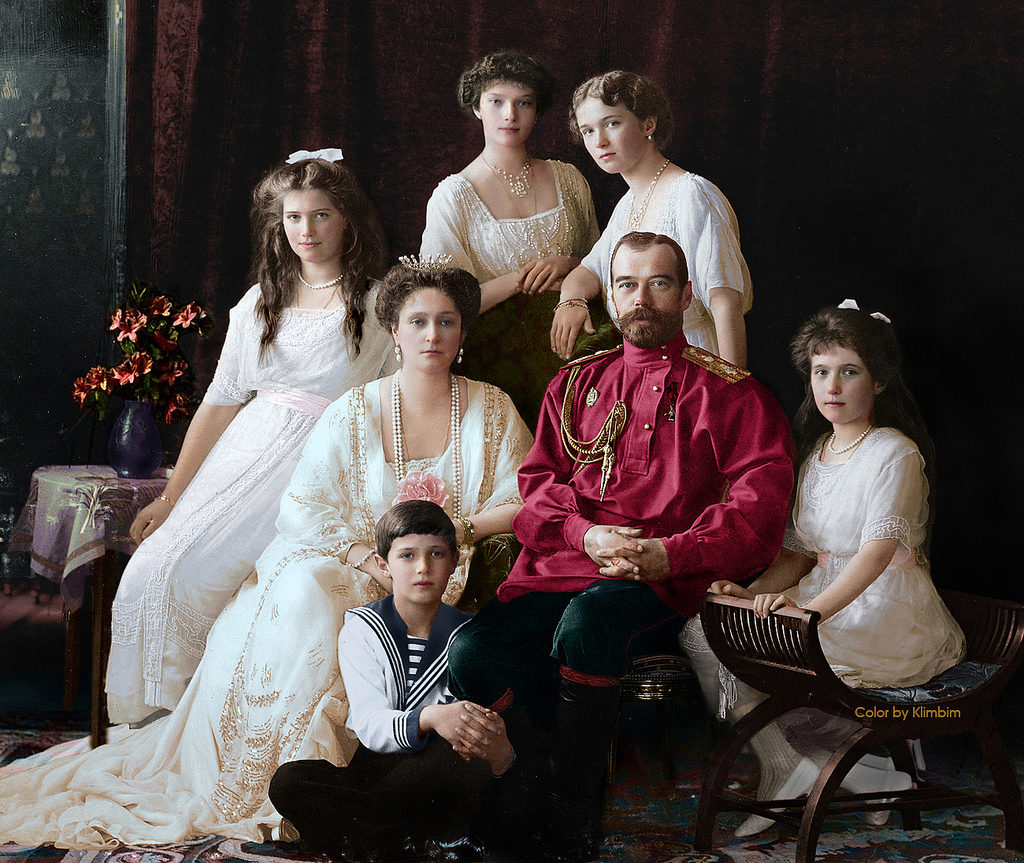
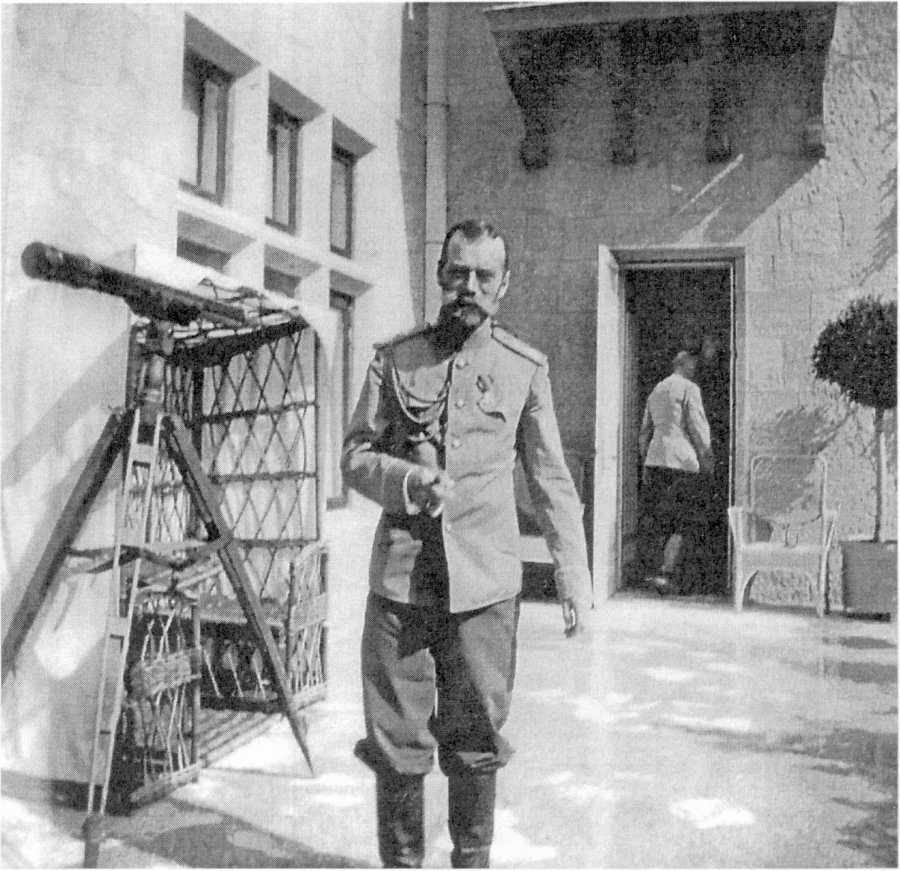
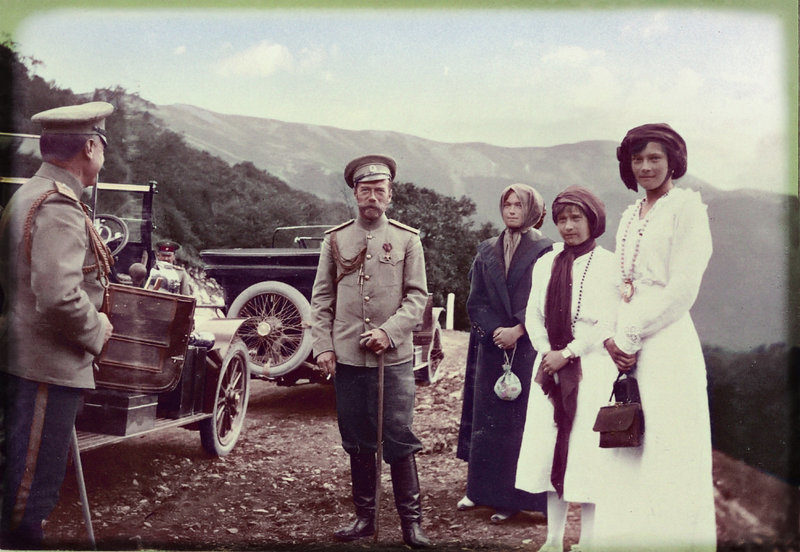
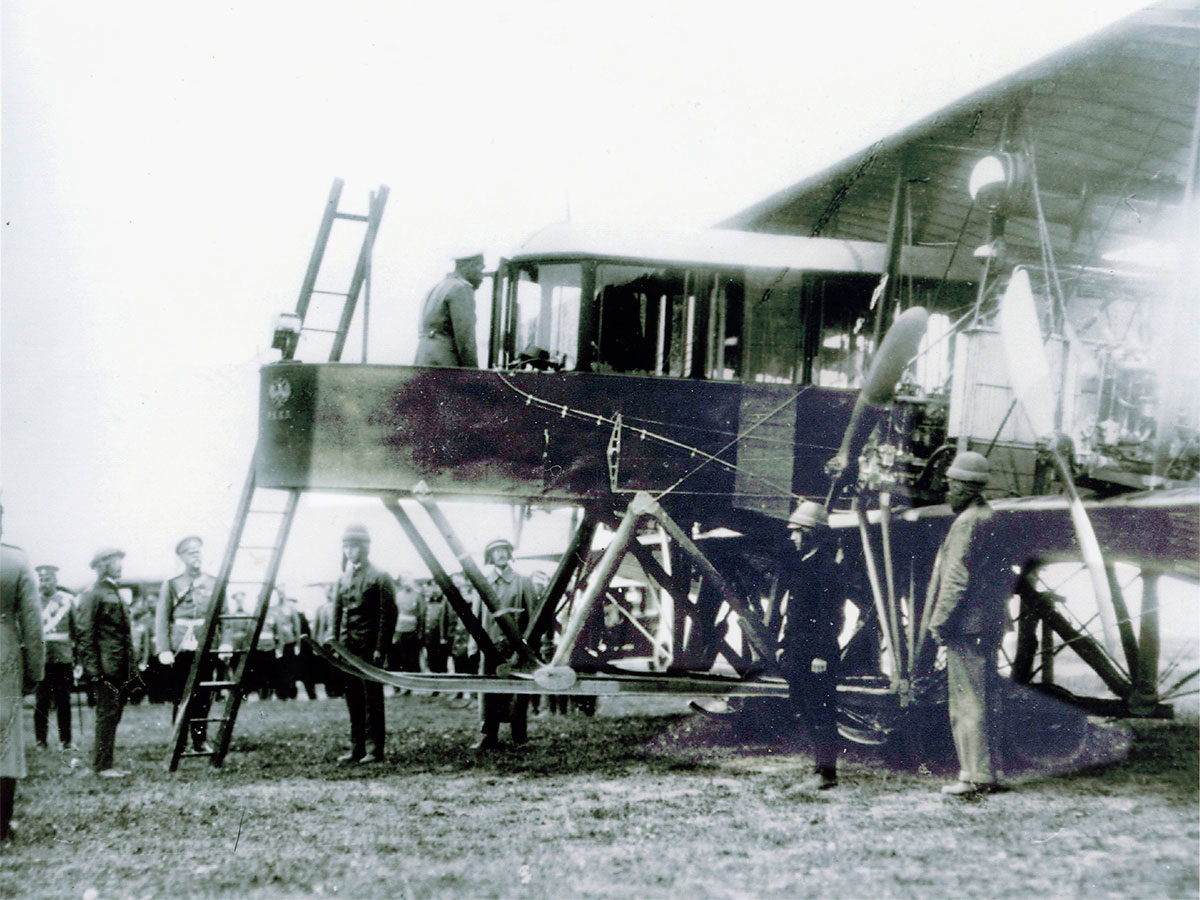
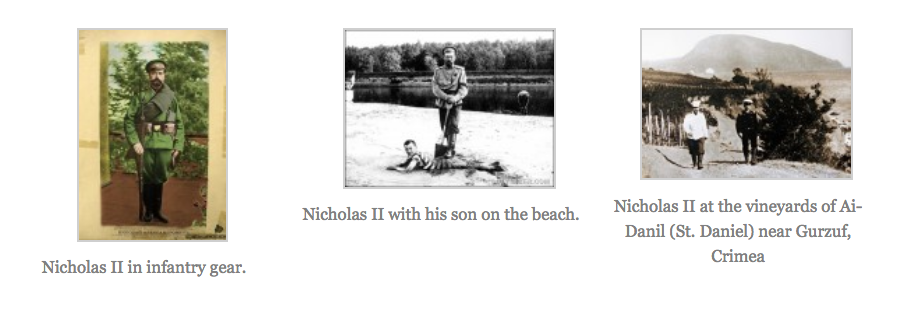



Comment: Further reading: